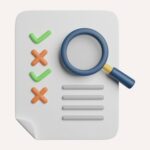Debt can be a daunting obstacle in the journey to financial well-being.
Incurring debt is often necessary for personal growth and fulfillment, such as paying for higher education or buying a home.
However, excessive debt can lead to long-term financial strain and it will hinder your ability to achieve your financial goals in life.
That’s why it’s essential to have a plan in place to tackle debt and regain control of your finances.
In this blog post, we’ll discuss 15 expert-recommended ways to get out of debt and take steps toward financial freedom.
1. Assess Your Financial Situation
Before taking any action, it’s crucial to understand your current financial situation. Start by calculating your total debt, including credit cards, student loans, auto loans, and personal loans.
Next, determine the interest rates and minimum payments for each debt. Identifying areas where you can cut expenses is also essential; this will enable you to allocate more funds toward debt repayment.
Finally, create a budget to ensure you’re not spending more than you’re earning.
2. Prioritize Your Debts
When it comes to paying off debt, it’s essential to have a strategy in place. Three popular methods for prioritizing debts are the Snowball, Avalanche, and Hybrid methods.
The Snowball Method involves paying off your smallest debt first, then moving on to the next smallest, and so on. The Avalanche Method, on the other hand, focuses on paying off the debt with the highest interest rate first.
The Hybrid Method combines the two approaches, considering both the balance and interest rate when prioritizing debts. Choose the method that works best for your unique situation and motivates you the most.
3. Increase Your Income
Boosting your income is an effective way to allocate more funds toward debt repayment. Consider taking on side hustles, such as driving for a rideshare service, pet sitting, or selling handmade crafts.
Freelance work, like graphic design, writing, or consulting, can also supplement your income. Lastly, don’t be afraid to negotiate a raise at your current job or search for a higher-paying position.
4. Reduce Interest Rates
High interest rates can prolong your debt repayment journey. To minimize their impact, consider using balance transfer credit cards with low or zero interest rates, or applying for debt consolidation loans.
Moreover, don’t hesitate to negotiate lower interest rates with your creditors; they may be willing to work with you to create a more manageable payment plan.
5. Create an Emergency Fund
An emergency fund is essential for covering unexpected expenses without relying on credit.
You can start by saving a small amount each month, gradually building up to three to six months’ worth of living expenses. This will help you avoid new debt and provide peace of mind during emergencies.
6. Make Extra Payments
Using any extra income to make additional debt payments can significantly speed up the repayment process.
Small, frequent payments, known as “snowflake” payments, can also make a big difference over time.
Furthermore, consider making biweekly payments instead of monthly payments to reduce interest and pay off debt faster.
7. Adopt a Frugal Lifestyle
Embracing frugality can help you save money and allocate more funds toward debt repayment.
Cut unnecessary expenses, such as subscription services or dining out, and shop smarter by using coupons, sales, and cashback apps. Engage in DIY projects and cook at home to save even more money.
8. Implement the 50/30/20 Rule
This budgeting rule suggests allocating 50% of your income to necessities, 30% to wants, and 20% to savings and debt repayment.
Adapt this rule to your financial situation by allocating more funds to debt repayment if needed. To stay on track, regularly review your spending and make adjustments as necessary.
9. Avoid New Debt
To make significant progress in your debt repayment journey, it’s crucial to avoid taking on new debt.
Pause credit card usage and switch to using cash or debit cards for everyday purchases.
You should save for large purchases instead of relying on credit, and work on developing better spending habits to prevent future debt accumulation.
10. Use Windfalls Wisely
Windfalls, such as tax refunds, bonuses, or inheritances, can provide a significant boost to your debt repayment efforts.
Instead of splurging on unnecessary items, allocate the majority of these funds toward paying off your debts.
This can help you make substantial progress and accelerate your journey to financial freedom.
11. Seek Professional Help
If you’re struggling to manage your debt on your own, consider seeking professional help.
Credit counseling agencies can provide guidance and support, while debt management plans can offer a structured approach to paying off your debts.
In extreme cases, debt settlement or bankruptcy may be necessary, but these options should only be considered as a last resort.
12. Stay Accountable and Motivated
Consistently track your progress and celebrate milestones, such as paying off a credit card or reducing your overall debt by a certain percentage.
Staying focused on your long-term goals and remembering the benefits of a debt-free life can help keep you motivated throughout your journey.
13. Educate Yourself on Personal Finance
Improving your financial literacy can have a lasting impact on your ability to manage debt and achieve financial freedom.
Read books, listen to podcasts, and follow blogs on personal finance topics. Attend free financial workshops and webinars to gain new insights and learn from experts in the field.
14. Network with Like-Minded Individuals
Connecting with others who share similar financial goals can provide additional support, motivation, and accountability throughout your debt repayment journey.
You can join online communities, participate in forums, Facebook groups, or Reddit groups.
You can also find a friend or family member with similar financial objectives and check in regularly to discuss progress, challenges, and accomplishments.
15. Utilize Technology and Tools for Debt Management
You can download various apps and online tools that will help you to streamline your debt repayment process and keep you on track.
Utilizing these online resources can help you stay organized, monitor your progress, and optimize your debt repayment strategy.
Conclusion
I hope these 15 tips will help you come out of debt.








